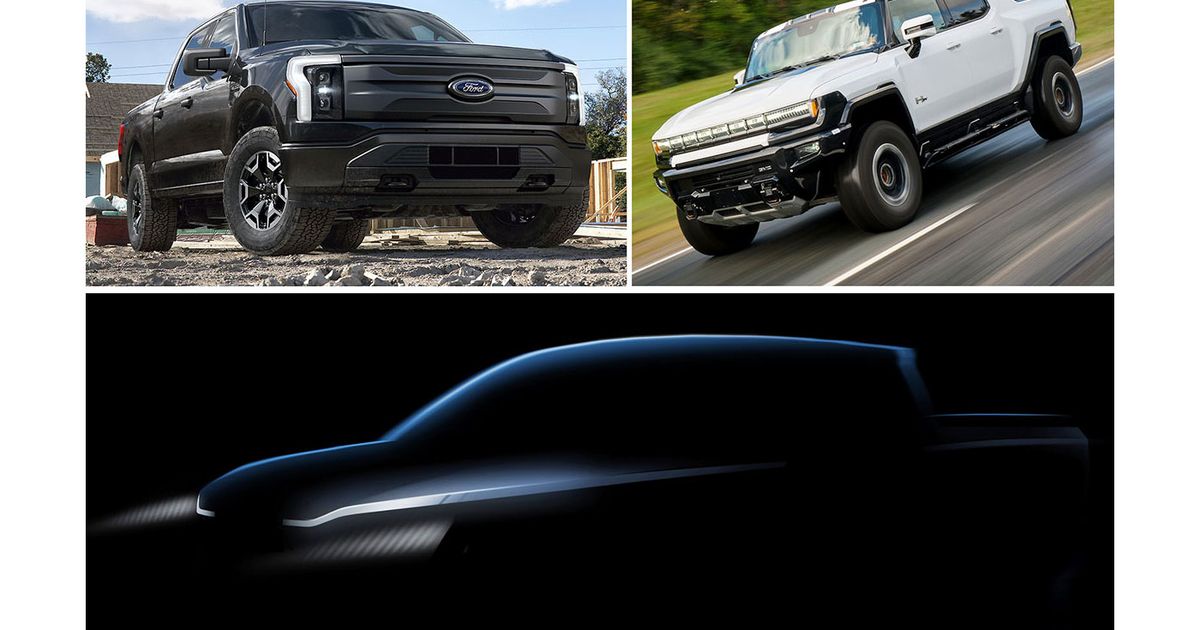
NEW YORK — General Motors and Ford Motor Co. have laid down the gauntlet in the electric pickup space on range and performance.
Stellantis’ Ram brand, still two years away from releasing its own battery-powered pickup, can’t beat them on timing, so it’s working on setting a new benchmark instead.
Ram will be watching closely as Ford starts selling the F-150 Lightning this month, and its designers and engineers are using the lag to learn what consumers really want from an electric pickup.
The brand, using insights gleaned from its Ram Revolution insider program and a series of town hall conversations called the Ram Real Talk Tour, hopes to swoop in with a superior offering after its rivals cultivate a market that barely exists today. It plans to show an electric pickup concept for the first time this year.
Ram CEO Mike Koval said the brand will pair what it learns from pickup owners with the knowledge it already has about the capabilities of competitors’ options. Koval believes this combination gives it an edge leading up to the Ram electric pickup’s slated 2024 release.
“We’re fanning out across the country,” Koval told Automotive News. “Our designers and engineers are going out and talking to actual real people and gathering that feedback and intelligence.
“That’s really where I think Ram is going to separate ourselves from the rest is with the full knowledge of what our competitors are doing. We will push past our competitors in terms of those important metrics like towing and hauling and, in the future, charge time, range and things of this nature.”
Rivian kick-started the U.S. electric pickup segment last fall with the R1T, which was followed by the GMC Hummer EV in December. Ford is launching the F-150 Lightning on April 26, about a year before the scheduled release of the Chevrolet Silverado EV. Tesla this month said it would launch its Cybertruck in 2023, which also would put it ahead of Ram.
Coming to the market a little later means Ram could have added pressure to stand out. Joining the fray after the Ford and GM pickups will “require Ram to bring something distinctively new,” said Sam Fiorani, vice president of global vehicle forecasting for AutoForecast Solutions.
“Back when the truck was sold under the Dodge brand, the Ram truck broke the market wide open with distinctive styling and could do that again,” Fiorani said in an email. “Lacking the rumble of the Hemi V-8, which is a large draw for current Ram 1500 buyers, an electric truck will need to add features and styling that give the truck some emotional connection with potential buyers. By the time the truck arrives, the market will be crowded, so going the extra distance will make or break the Ram EV’s success.”
The F-150 Lightning is the long-awaited, first big test of the appetite that businesses and consumers have for an electric pickup. Ford has capped Lightning reservations at about 200,000, but executives have not said how many have converted to orders. The company has said more than 70 percent of Lightning reservation holders are new to Ford and to pickups.
The Hummer EV, a more niche product that sells for more than $112,000, has a 329-mile range. The F-150 Lightning, with the extended-range battery option, gets 320 miles. Koval said the goal for Ram 1500 EV range is clear: “Be better than the other guys.”
He believes commercial customers will be among the truck’s early adopters. Ford and Chevrolet are marketing their electric pickups heavily to businesses; both will launch with the lowest-priced trim targeted to work users and loaded-up versions aimed at consumers.
“Based on what I call our internal performance index … we will have the best BEV to come to market, and that’s what this is all about,” Koval said. “I mean we’re in a race, this is competition, we want to be the best, and as a brand that is built to serve — that’s our mantra, our philosophy on business — we want to make sure that we have truly embraced the customer voice.”